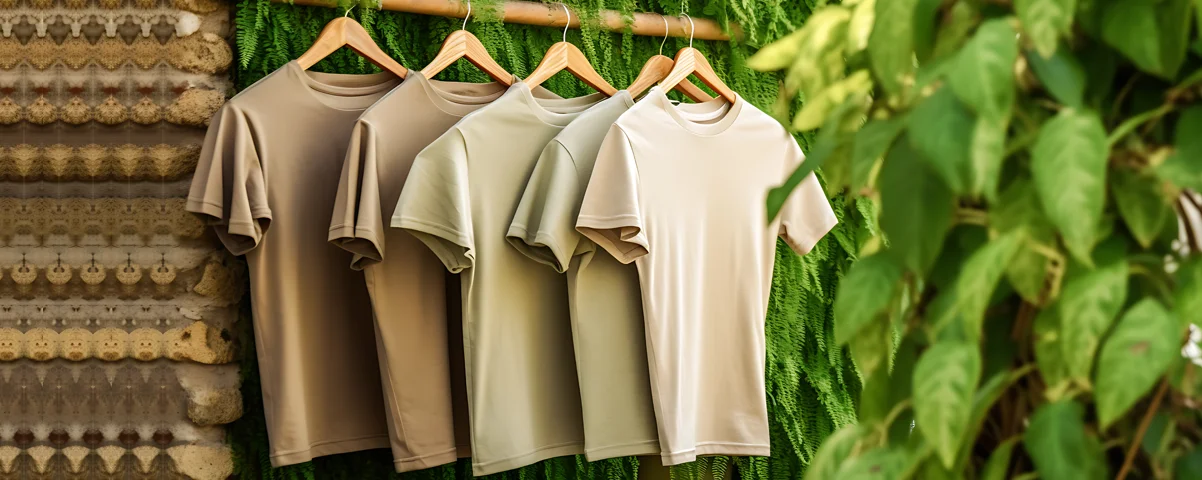Cape Town Sustainable Fashion: Ethical Clothes for a Much Better Earth
Cape Town Sustainable Fashion: Ethical Clothes for a Much Better Earth
Blog Article
Stay Ahead of the Contour by Checking Out Innovative Fashion Trends
In an industry as vibrant as style, staying in advance includes even more than simply adhering to current fads-- it demands an expedition of technology. The merging of modern technology and style heralds a new period of customer engagement.

Welcoming Smart Textiles
Over the last few years, the apparel industry has experienced a transformative shift with the integration of wise textiles, an advanced advancement that blends modern technology with fabric. This evolution stands for not just a blend of appearances and capability but additionally a substantial jump towards sustainability and personalization in style. Smart fabrics, additionally called e-textiles, embed advanced electronics such as sensing units and conductive threads within the textile, enabling garments to connect with the environment or the user.
These fabrics are developed to keep track of physiological criteria, such as heart rate or body temperature, providing real-time health analytics. Past wellness applications, wise textiles are also being used for flexible clothes, which can alter shade or pattern in feedback to ecological stimuli, thus supplying a vibrant style experience.
Additionally, the advancement of energy-harvesting textiles that create power from motion or sunshine is leading the means for self-dependent wearable innovation. This development is attracting environmentally aware consumers and developers intending to minimize the ecological footprint of fashion. As r & d in this area advancement, clever fabrics are expected to come to be increasingly widespread, improving the landscape of contemporary fashion with their multifunctional abilities.
The Surge of 3D Printing
Revolutionizing the manufacturing landscape, 3D printing has actually arised as a game-changer in the garment industry. This innovative technology has actually allowed developers to press the borders of creative thinking, producing complex and personalized garments that were previously inconceivable. By leveraging electronic style and additive manufacturing, 3D printing promotes the production of intricate geometries and patterns, allowing designers to try out new appearances and structures.
A remarkable advantage of 3D printing in style is its capacity to produce on-demand, decreasing waste and decreasing inventory needs. This performance not just optimizes production processes however additionally permits quick prototyping, making it possible for developers to bring their visions to life in a shorter timeframe. Additionally, 3D printing sustains customization to a degree unmatched by traditional techniques, using unique styles and individualized fits customized to individual consumer preferences.
The increase of 3D printing has also democratized fashion, making it easily accessible to emerging designers who can now produce top notch items without significant financial investment in typical production framework. As technology continues to breakthrough, the fashion business is poised to harness the complete possibility of 3D printing, discovering brand-new products and methods that will most certainly redefine just how style is conceived and generated.
Lasting Fashion Developments
As the fashion business faces journalism need for environmental responsibility, lasting fashion technologies have actually arised at the leading edge of transformative change. The expanding understanding of ecological effect has fueled a change in the direction of even more eco-conscious practices and materials. Brand names and designers are currently prioritizing sustainability, including methods that lessen waste and lower carbon impacts.
One significant growth is the surge of circular fashion, which stresses recycling and upcycling to expand the lifecycle of garments. This method not only reduces address waste however also motivates customers to adopt a more conscious technique to clothing intake. In addition, making use of lasting products, such as natural cotton, hemp, and recycled polyester, has acquired traction. These products need less water and power throughout manufacturing, significantly minimizing environmental influence.
One more development exists in the fostering of innovative dyeing methods that use all-natural dyes or waterless procedures, thus decreasing the huge quantities of water and chemicals typically used in textile dyeing. Additionally, advancements in biotechnology have actually resulted in the production of lab-grown natural leather and textiles, supplying cruelty-free and eco-friendly alternatives to traditional products. Via these pioneering initiatives, the fashion industry is making significant strides towards a much more lasting future.

Tech-Integrated Apparel
Tech-integrated apparel stands for a groundbreaking blend of fashion and innovation, improving how people communicate with their clothes. This innovative domain name is marked by the inclusion of wise textiles and ingrained electronic elements, enhancing both performance and aesthetic charm. From fitness trackers embedded in sports apparel to heated jackets controlled by means of smart device apps, tech-integrated apparel offers customers extraordinary benefit and versatility.
Pioneering brand names are driving this fad, concentrating on producing garments that respond to ecological stimulations or individual commands. As an example, some garments can transform shade or pattern in reaction to temperature changes, while others incorporate biometric sensing units to monitor health and wellness metrics like heart rate or stress and anxiety levels. The smooth integration of modern technology right into fabrics likewise includes ecological sustainability, with efforts to develop self-cleaning fabrics or garments that get used to climate condition, thus lessening the requirement for multiple layers.
Furthermore, the advent of wearable technology is not just restricted to clothing yet extends to accessories like watches and glasses, further broadening the scope of tech-integrated fashion. As the industry continues to innovate, the possibility for personalization and customization in garments grows, supplying customers unique, tech-enhanced style experiences that cater to their individual needs and preferences.
Future of Virtual Style
Recently, the future of virtual fashion has arised as a transformative pressure within the market, leveraging developments in digital innovation to redefine just how style is produced, experienced, and consumed. By incorporating enhanced reality (AR), online truth (VIRTUAL REALITY), and 3D design tools, designers can currently craft interactive and immersive experiences that transcend conventional style limits. Virtual style enables for the development of garments that exist solely in electronic settings, supplying countless opportunities for development without the constraints of physical production.
This electronic change not only provides possibilities for imaginative expression however additionally addresses sustainability concerns inherent in traditional fashion practices. Cape Town Sustainable Fashion. By getting rid of the demand for physical sources, online style decreases waste and lessens carbon footprints. Moreover, the rise of online style lines up with the enhancing consumer need for distinct and individualized experiences, as digital garments can be customized and customized to private choices with simplicity

Conclusion
The style market's future lies in the assimilation of ingenious innovations and lasting practices. Online style is positioned to redefine consumer interactions.
In recent years, the style industry has go to website seen a transformative shift with the combination of smart fabrics, a sophisticated advancement that blends technology with fabric.As the fashion market grapples with the pushing demand for environmental responsibility, sustainable style innovations have actually emerged at the center of transformative change.In current years, the future of virtual fashion has actually arised as a transformative pressure within the sector, leveraging innovations in digital modern technology to redefine how style is developed, experienced, and taken in. The surge of virtual fashion lines up with the increasing consumer need pop over to this site for individualized and one-of-a-kind experiences, as virtual garments can be personalized and customized to private preferences with simplicity.
The style industry's future lies in the assimilation of innovative modern technologies and lasting techniques.
Report this page